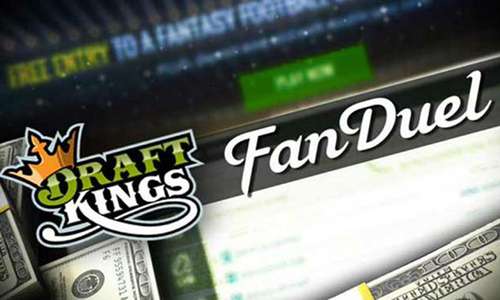Hawaii Attorney General Declares DFS Illegal
Welp, there goes my dream of relaxing on the beach, snacking on a pineapple I just picked, and actually caring about a Jacksonville Jaguars game. On Wednesday, Hawaii Attorney General Douglas Chin issued a formal opinion that daily fantasy sports (DFS) is illegal under current state law.
 This continues the trend of state AG’s doing the same thing, as New York, Vermont, Illinois, and Texas all recently declared DFS to be illegal, as well. Arizona, Iowa, Louisiana, Montana and Washington all already have laws on the books against fantasy sports. Nevada has also put the brakes on daily fantasy, but not because it is considered illegal in the state, but simply because it is considered gambling and therefore operators must have a gaming license.
This continues the trend of state AG’s doing the same thing, as New York, Vermont, Illinois, and Texas all recently declared DFS to be illegal, as well. Arizona, Iowa, Louisiana, Montana and Washington all already have laws on the books against fantasy sports. Nevada has also put the brakes on daily fantasy, but not because it is considered illegal in the state, but simply because it is considered gambling and therefore operators must have a gaming license.
It should not come as a huge surprise that Hawaii has outlawed DFS, as it is one of two states, along with Utah, that has no legalized gambling of any kind, not even a state lottery.
In a press release, Attorney General Chin said, “Gambling generally occurs under Hawaii law when a person stakes or risks something of value upon a game of chance or upon any future contingent event not under the person’s control. The technology may have changed, but the vice has not.”
Chin’s advisory opinion was written in response to State Senator Rosalyn Baker’s query as to the legality of daily fantasy sports. In his write-up, Chin lays out the state’s three requirements for an activity to be considered “gambling”:
A person engages in gambling if [1] he [or she] stakes or risks something of value [2] upon the outcome of a contest of chance or a future contingent event not under his control or influence, [3] upon an agreement or understanding that he or someone else will receive something of value in the event of a certain outcome.
The first requirement, or “prong,” as Chin calls it, is pretty obvious. Daily fantasy sports players risk money, which is something of value. Chin couldn’t care less if it is called an “entry fee” and not a “wager,” and he would be correct in his assessment. The third “prong” is also straightforward in that the winners will receive something of value, money, if they score enough points.
Chin conducted a bit more analysis with the second requirement, which deals with “a contest of chance or a future contingent event not under his control or influence.” He wrote:
Daily fantasy sports contests are contests of chance under Hawai’i law, which defines them as “any contest, game, gaming scheme, or gaming device in which the outcome depends in a material degree upon an element of chance, notwithstanding that skill of the contestants may also be a factor therein.”
Chin admitted that the phrase “material degree upon an element of chance” has never been interpreted by a Hawaii court, so he instead cited examples of it in other cases, even ones that occurred in other states. In particular, he looked at State v. Prevo in which the Hawaii Supreme Court upheld the conviction of a “Fascination” game player who argued that she was not gambling because it was a game of skill. Chin quoted the Court, which said:
[T]he test of whether a game is one of skill or of chance, or one in which skill greatly predominates over chance, is not to be measured by the standard of experts or any limited class of players, but by that of the average skill of a majority of players likely to play the game, for the purpose is to determine the primary object of the game and this is one of the ways of doing so.
Chin did not argue that there is no skill involved in DFS, but rather that skill is the difference maker only for a small percentage of players. Chance dominates for the majority of players.
That second “prong” also uses the phrase “future contingent event not under his control or influence.” Not much analysis is needed there. DFS players have control over which players they draft, but no control or influence over what those players actually do in the real-life sporting events.
“Based on the discussion above,” Chin concluded, “we conclude that daily fantasy sports contests constitute illegal gambling under Hawai’i law.”
In his opinion, Chin also compared daily fantasy to traditional, season-long, fantasy sports. He didn’t really give a solid reason why “traditional” is ok and DFS isn’t except to note that the amount of money in DFS dwarfs that of season-long fantasy. He did note, though, that most traditional fantasy leagues would be considered “social gambling,” which is legal under Hawaii law.
Unlike in previous instances where DFS was ruled illegal by an Attorney General, neither DraftKings nor FanDuel, the two largest DFS sites, have issued a public comment on the Hawaii ruling. Considering three of the previous states – New York, Illinois, and Texas – make up a large portion of the sites’ player base and Hawaii does not, it is probably not surprising that the sites haven’t jumped to action.



















COMMENTS